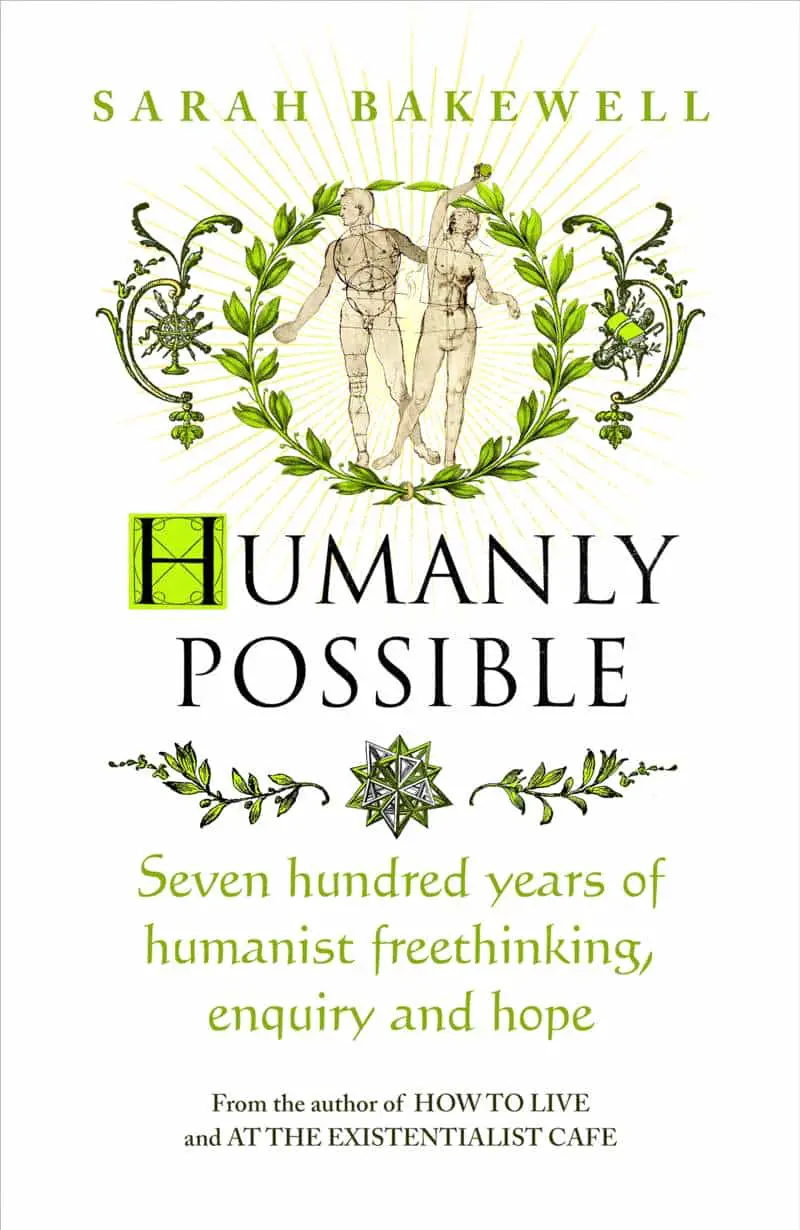If you’re wondering about the definition of ‘humanism’, you’re not alone. The word has many meanings.
WHAT IS HUMANISM?
INTERVIEWER: You start the book with the pointed question, “What is humanism?” and point out that [the word] has many faces.
SARAH BAKEWELL: It does, and it could cover a lot longer than 700 years, as well. There could even be other meanings I haven’t thought of, but I try and cover some of them in the book.
For the English speaking world at least, it’s best associated with the idea that we can live our lives morally and meaningfully without needing to have a belief in god or the afterlife. But it’s also had other meanings through history and still does.
One of the [other meanings refers to] people who study the humanities. That meaning goes back to the 14th century, which is where I start the book.
And then there’s a general humanist attitude, or humanist philosophy if you like, which can come across in all sorts of applied forms. [In this context] it just means putting the well-being of the human individual and community above other considerations whether it’s ideology or, say in architecture, having a useful design but it’s impossible to live in. The humanist would prefer to have somewhere that’s liveable, even if it’s not as useful.
Sarah Bakewell explains humanism on Australian podcast Late Night Live, Tuesday 4 April 2023
Happiness is the only good. The time to be happy is now. The place to be happy is here. The way to be happy is to make others so.
Robert Green Ingersoll’s “Humanist Creed” (American lawyer and writer nicknamed “The Great Agnostic”).
IS HUMANITARIANISM THE SAME AS HUMANISM?
Humanism might also be considered the inverse of, or inoculation against, fascism, because humanitarian concerns naturally develop from a Humanist world view.
Humanitarianism is the application of humanism to other humans and other sentient life. It basically means Humanitarian means doing kind things to creatures who benefit from that kindness.
The fascist project was to remake human beings into a new kind of ruthless, hard, pitiless entity [and] to expunge humanitarianism from the political system and from people’s consciences.
Richard J. Evans, British historian
HUMANLY POSSIBLE BY SARAH BAKEWELL

If you are reading this, it’s likely you already have some affinity with humanism, even if you don’t think of yourself in those terms. You may be drawn to literature and the humanities. You may prefer to base your moral choices on fellow-feeling and responsibility to others rather than on religious commandments. Or you may simply believe that individual lives are more important than grand political visions or dogmas.
If any of these apply, you are part of a long tradition of humanist thought, and you share that tradition with many extraordinary individuals through history who have put rational enquiry, cultural richness, freedom of thought and a sense of hope at the heart of their lives.
Humanly Possible introduces us to some of these people, as it asks what humanism is and why it has flourished for so long, despite opposition from fanatics, mystics and tyrants. It is a book brimming with ideas, personalities and experiments in living – from Erasmus to Esperanto, from anatomists to agnostics, from Christine de Pizan to Bertrand Russell to Zora Neale Hurston. It joyfully celebrates open-mindedness, optimism, freedom and the power of the here and now – humanist values which have helped steer us through dark times in the past, and which are just as urgently needed in our world today.
